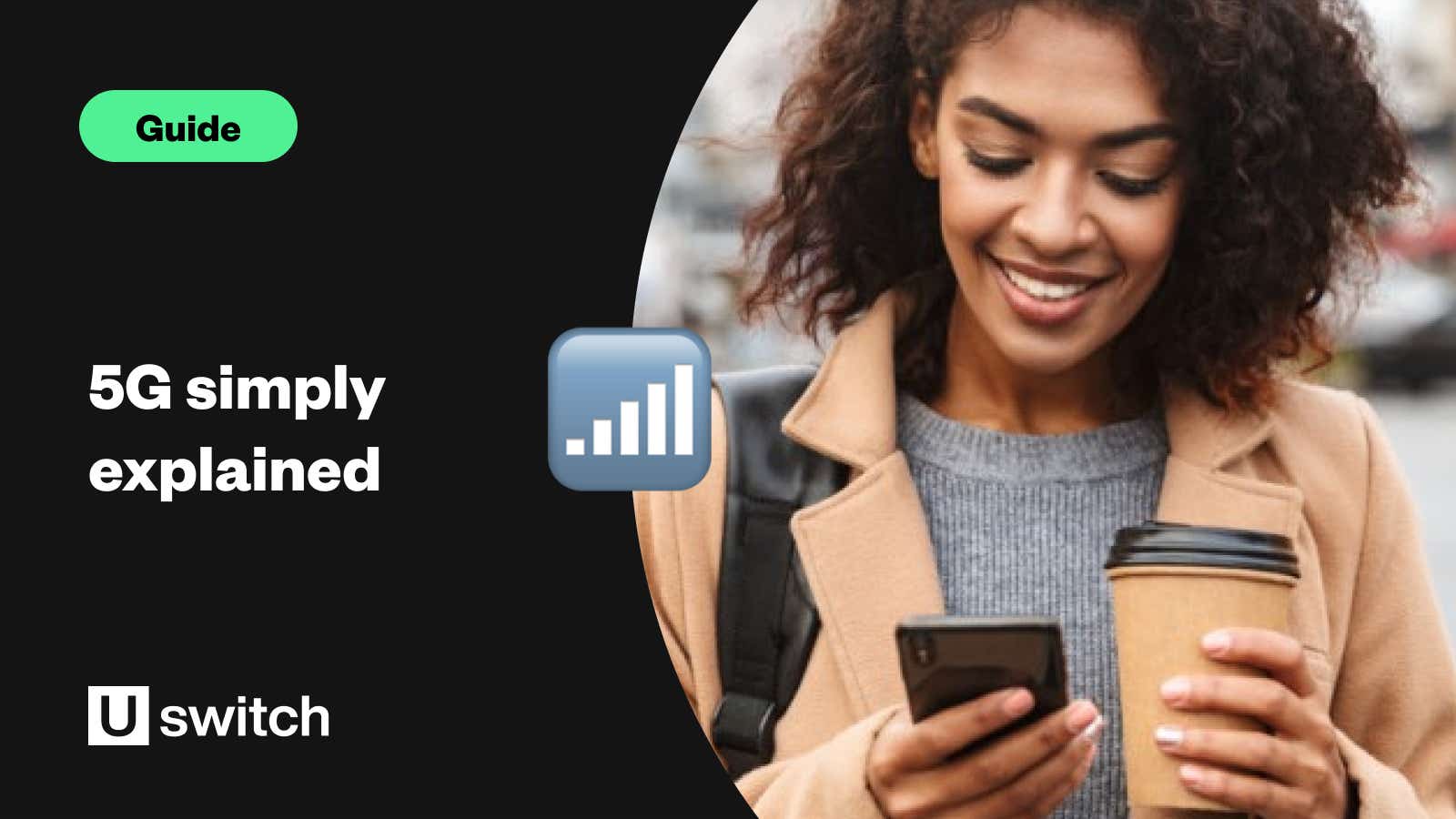Your guide to 5G and everything you need to know


What’s so special about 5G? How much does 5G cost? Is 5G significantly better than 4G? We’ve created a guide to 5G that will answer the most frequently asked questions.
What is 5G?
5G, which stands for ‘fifth generation’, is the latest network technology that will eventually replace 4G as the means through which we connect to the internet on smartphones, tablets and a huge range of other web-enabled devices.
5G technology has the capacity to handle the surge in demand for bandwidth generated by the explosion in the number of internet-connected devices. That means the mobile web won’t become congested and slowed down by the sheer weight of demand.
Struggling to get 5G in your area? Take a look at our best 5G coverage UK guide.
What are the benefits of 5G technology?
In addition to faster speeds, 5G also comes with low latency, meaning that information can be shared in real time, which is vital for quick response times.
The enhanced technology is useful in a number of fields, including high-speed broadband, remote machine operation, and autonomous vehicles.
How fast can 5G be?
On paper, 5G is much, much faster than 4G. The theoretical maximum speed for 4G is 1Gbps. By way of comparison, the theoretical maximum speed for 5G is 20Gbps. So 5G is theoretically 20 times faster.
In practice, the UK’s actual current average 4G speeds are well below that. Even on EE, which is the network with the UK’s fastest 4G service by some distance, customers experience an average speed of 20Mbps.
With that in mind, it’s unlikely that actual 5G speeds for consumers will be anywhere close to the 20Gbps that the technology is capable of. But tests conducted under real-world conditions still bode well for a much faster service than 4G.
In 2015, Chinese phone maker Huawei teamed up with the Docomo network to give customers participating in trials 5G connection speeds of up to 3.6Gbps. That’s superfast for a mobile, by anyone’s standards.
What does that speed mean exactly?
With the theoretical maximum 5G connection speed of 20Gbps, you could download an entire 25GB UltraHD movie in about ten seconds. But in reality, 5G speeds will vary from place to place and from network to network.
One recent study suggested that the average download speed for 5G in the UK lies between 70 and 200 Mbps. At that speed, that same UltraHD movie would take about 16 minutes to completely download. Even so, 200 Mbps is still considered superfast when browsing the internet.
With 5G you can, of course, still surf the web, stream video, download content and apps and do everything you do now. But you’ll be able to do it a lot quicker. You’ll also notice response times are much faster when you’re playing online games on your phone.
What factors affect 4G and 5G speeds and connection quality?
It might be lightning quick, but the very same things that impair 4G speeds will also affect the speed and quality of your 5G connection. Think: buildings (especially tall ones in high-density areas), microwaves and other Wi-Fi signals.
How does 5G work?
Like the previous generations of mobile data, 5G uses the radio spectrum, which supports all the wireless services used by people every day, including making phone calls and listening to the radio. It’s the same part of the electromagnetic spectrum that you use in your home when you connect to Wi-Fi.
The frequencies that 5G radio waves use are slightly higher than 4G, which means it can carry more data at a faster rate. However, those higher frequency waves don’t travel as far and are more easily blocked by obstacles like trees and buildings.
What makes 5G so much better than 4G?
Compared to 4G, 5G offers the ability to connect to thousands of different devices in a relatively small area. Providers have put up additional antennas throughout urban areas to ensure consistent coverage.
5G also uses a technology called beamforming to direct signals to a specific user or device, as opposed to broadcasting in all directions like previous generations of mobile technology, making 5G more efficient.
Is 5G safe?
5G uses radio waves, and the effects of radio waves on health have been studied for many years. Public Health England has said that there’s no concern to public safety regarding the prevalence of 5G.
Mobile companies are required to ensure that their signals do not exceed the limits set by the International Commission for Non-Ionising Radiation Protection (ICNIRP). Ofcom has measured radio wave emissions at 5G sites across the UK and have measured the level of 5G signals at 0.039% of this recommended maximum.
It’s widely known that claims which suggest a link between 5G and public health or even the coronavirus pandemic are completely unfounded.
The cost of 5G technology
Since 5G launched in the UK, most of the major mobile phone networks now offer various different 5G plans. While you might think you’d be expected to pay more for 5G than 4G, in many cases, you'd be wrong.
Networks like Vodafone, Three, O2 and EE have made 5G a standard part of their new plans. It just comes down to whether you have a 5G-compatible mobile phone to actually be able to use it.
However, one thing to note is that your data allowance will play an important part in factoring your costs. If you’re using 5G to stream and download a lot of content on your smartphone, you’ll end up using more data. As long as you’re on a big data plan, this wont be a problem. But if you’re on a much smaller data allowance, you might end up running out sooner than you’re used to on 4G.
The best prices for 5G
If you already own a 5G-compatible smartphone, you can pick up 5G SIM only deals from just £5 a month or less, although these deals don't come with a huge amount of data.
To get unlimited data, prices range from £10 to £30 a month to get 5G data on a SIM only deal. Generally, prices will vary depending on how well known the brand is, and whether the deal comes with other perks.
If you’re more interested in a pay monthly plan that includes a 5G smartphone, all of the newest models of smartphones come with 5G capability. When it comes to the cheapest 5G phones, factors that determine the price include the smartphone you get with the deal, how much you pay upfront and how much data you need.
Will 5G ever replace Wi-Fi?
No, 5G probably won't replace your home Wi-Fi anytime soon. In the same way 4G is primarily used on mobile devices, you'll likely only use 5G on your smartphone... for now. We've already seen a few 5G routers on the market. And 5G's speeds could certainly provide a boost to your home network, but it's one for the future.